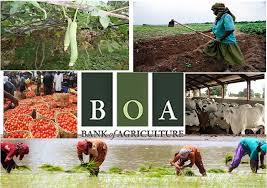Agro produce are highly sought after commodities across the globe. A recent report by the International Agricultural Research Institutes (IARI) based in Germany.
In its 2021 reports highlighted the several opportunities and challenges in the Agricultural sector, with key references to how farmer’s in developing counties are losing out.
The report for instance, opines that,due to poor organization and access to market on the part of farmers.
Majority of there produce are under price,under value and suffer exploitation’s that lead to labour lose.
Sadly, the disadvantage farmer’s goes home smiling with few hundred of dollar’s, however, the buyers smile much more making millions in dollars has profits.
In the words of Karl Marx, this is pure “appropriation through exploitation ”
Interesting,the latest move by the federal government of Nigeria to ban foreigners from directly buying agro produce from farmers.
Resonant, a timely intervention to deliver Nigerian farmers from the exploitation of foreigners in collaboration with local middle men and women.
Given,the Nigerian state arguably has been showings considerable attentions towards the agricultural sector.
With billions of naira as intervention and direct government investment to boost the sector.
In the face that crude oil cannot be dependent on any more,and a lots of revenue can be generates from the non oil sector.
Moreso,that the agricultural sector with all the value chains attributes cannot be neglected.
Remarkably, the governments can be seen to have listen to calls from Nigerians on how much the agro sector can be meaningfully managed and pull farmer’s out of exploitations and poverty.
The ban according to the government’s is a move to utilize trade as alternatives means of generating revenue.
Meanwhile to achieved this the government aimed to established mechanism to protect farmers through appropriate and right prices.
According to the Minister of Trade and Investment, Otunba Niyi Adebayo, that “over the years, foreigners have been going to the farm gates to buy produce from the farmers at low prices, that discouraging the farmers from continuing with their trade.
The Minister said he presented two memos on behalf of his ministry before the virtual Federal Executive Council, FEC, meeting presided over by Vice President Yemi Osinbajo at the Council Chambers, Presidential Villa, Abuja
First, was the promotion of agribusiness in Nigeria through right farm gate pricing and ban on foreigners and their representatives from purchasing agricultural commodities at the farm gates.
The second, been a Trade Policy Action Plan with the theme “Unleashing Nigeria’s Development Potentials through Trade and Investment”.
In the words of the minister “We finally got approval from FEC today for only licensed local buying agents who must be registered by the relevant national commodity associations, they are the ones who now will be able to buy goods directly from the farmers and sell to the foreigners”.
“This way, the farmers will no longer be cheated by these foreigners who just throw money at them and are able to buy their goods”
He added that the “action plan aims to utilise the existing national trade policy to facilitate an effective use of international trade and investment as tools for economic growth and poverty reduction in the country”
Without any doubts this policy is a welcome developments and that need Nigerians support.
Having said, a second look at the ban may not really work.
In the sense that the same government maybe end up banning imaginary foreigners.
This writer is saying this because of evidence base experience as someone who carryout research in that sector.
Firstly, is to know that,no foreigners risk there life going to any farm gate.
Secondly,a chain of middle men and women are now across the country officially refers to as “up-takers” who doing doing the buying.
Lastly, there is trend’s in buying and storing agro produces and commodities by Nigerian across the country. From the city centre people are now sending money to relatives to buy one produce for storing, rangingf rom,maize,millet,beans and others. This is particular as now become a means of addition income for different Nigerians including,civil servant,house wives students, and many others.
In retrospective, foreigners buying agro produce at the farm gate is an inherently colonial relationship that dated back to Nigeria and indeed African under colonial rule. Fundamentally, the colonial powers foremost means of disarticulation and integrating African economy into global capitalism came through exportation of raw agricultural produce, from cocoa,pal oil,groundnut,cashew etc,.
Therefore,we must recognized this fact even though post independent Nigeria. With the indigenization policy of the Nigerian state aimed to return the economy realm to the citizens suffered the suffocation from local importers and businessmen who are stooges of foreign capitalist.
Consequently, we must appreciates past development’s in that sector for us to comprehend the current situation. And interrogate asked why foreigners are still lucking around our farm gates?.
Sincerely,the answer steered us in the face. We are talking about food and of which their is increasing number of global actors and players aiming to remove what they considered complicates rules against their expansion and control of the global food supply.
In this regards leading international bodies that includes, the Food and Agriculture Organization of the United Nations (FAO), the International Fund for Agricultural Development (IFAD), and the World Food Programme (WFP),International Food Policy Research Institute (IFPRI).Have all raise concerns over global governance on the opportunities and challenges for food systems and agricultural system.
Within how farmers in developing countries’ can earned a desire transformation in livelihood’s effort’s.
However, we can fathom from the foregoing that it is imperative to protect local farmers in there contribution to global food and agricultural system..
For us we considered the ban from the premise of reinvigorating our farm produce pricing system thorough from a political economy mechanism.
Nevertheless,to ensure the policy gain attraction and impactful. First, the federal government goal of ensuring indigenous farmers get the right and appropriate prices for there goods and commodities. Would required an holistic structures, coordination and management to really bring the incentive for continue participation in agro businesses. Secondly, we expect that the local licensed agents will be people of integrity and not another gang of food supply saboteurs. Evidence of surging prices of food in the country is not far from the wicked activities of middle men hoarding and creating artificial scarcity of some food items. And if the prospectus licensed local agents are not well scrutinised, we may just hand over the livelihood and destiny of the farmers to a more dangerous cheater’s.
For us we suggest the Economic and Financial Crime Commission (EFCC), Office of the National Security Adviser to President (ONSA) and Department of State Security (DSS) to carry out clearance on them. Because,the bottom line is for us is a national leeway towards food Security and National Security.
Thirdly, no serious nation joke with revenue generations. And the current abysmal challenges around government revenues is a big concerns. Although it can be argue that our problems is not generations but arguably it is the leakages and wastages in government that need to be tackled. For us using agro trade to improve our revenue income is a tenable development, a step further is to eliminate the corruption’s around government book keeping.
Lastly, the policy as said early must be holistic and in this wise,we expect the government to carry all stakeholders along,not just people at corridor of power or sycophant of APC administrations.
It is imperative we let the government no that the idea of having a trade policy is not to sidelined government and surrendering the sector to the will and caprices of private businessmen. In the name of investment policy and followings failed neoliberal development paradigm.
From experiences around the globe, it time to rethink our policy formulation and implementation’s. If we truly want to reduce poverty and inequality.
Adefolarin A. Olamilekan
Political Economist and Development Researcher
Email:[email protected]
Tel 08107407870,08073814436
licensed local agents are not well scrutinised, we may just hand over the livelihood and destiny of the farmers to a more dangerous cheater’s.
For us we suggest the Economic and Financial Crime Commission (EFCC), Office of the National Security Adviser to President (ONSA) and Department of State Security (DSS) to carry out clearance on them. Because,the bottom line is for us is to have national leeway towards food Security and eliminate it threat to our National Security.
Thirdly, no serious nation joke with revenue generations. And the current abysmal challenges around government revenues is a big concerns. Although it can be argue that our problems is not generations but arguably it is the leakages and wastages in government that need to be tackled. For us using agro trade to improve our revenue income is a tenable development, a step further is to mitigate the corruption’s around government book keeping.
Lastly, the policy as said early must be holistic and in this wise,we expect the government to carry all stakeholders along,not just people at corridor of power or sycophant of APC administrations.
It is imperative we let the government no that the idea of having a trade policy is not to sidelined government and surrendering the sector to the will and caprices of private businessmen. In the name of investment policy and followings failed neoliberal development paradigm.
From experiences around the globe, it time to rethink our policy formulation and implementation’s. If we truly want to reduce poverty and inequality.
Adefolarin A. Olamilekan
Political Economist and Development Researcher
Email:[email protected]
Tel 08107407870,08073814436





